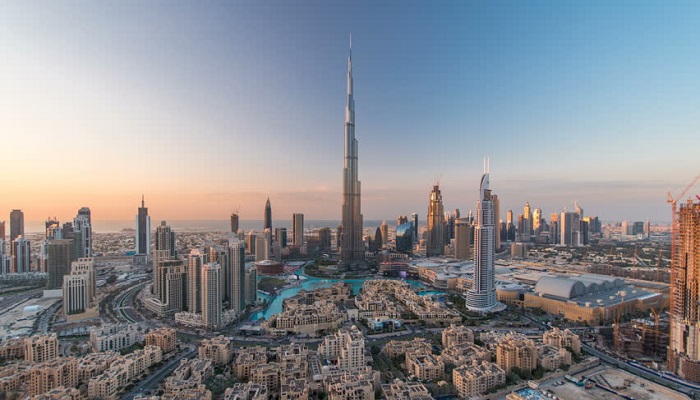
The Emirates is an oil-based nation. This is a known fact. But do you know how the non-oil based companies survive?
November’s data signaled a solid upturn in Dubai’s private sector business conditions. Steep growth in both output and inflows of new work contributed to the latest expansion. The seasonally adjusted Emirates NBD Dubai Economy Tracker Index – a composite indicator designed to give an accurate overview of operating conditions in the non-oil private sector economy – eased to 55.3 in November, from 55.6 in October. The rate of growth remained above the series’ long-run average, however. At the sector level, wholesale & retail companies reported the strongest improvement in business conditions.
A reading of below 50.0 indicates that the non-oil private sector economy is generally declining; above 50.0, that it is generally expanding. A reading of 50.0 signals no change.
The survey covers the Dubai non-oil private sector economy, with additional sector data published for travel and tourism, wholesale and retail and construction.
Commenting on the Emirates NBD Dubai Economy Tracker, Khatija Haque, Head of MENA Research at Emirates NBD, said:”The November survey continues to show solid growth in Dubai’s economy last month, at a similar pace to the previous two months. However, the softness in employment and lack of pricing power suggests that the environment for businesses remains challenging.”
Key Findings
> Dubai Economy Tracker Index eases to 55.3 in November, from 55.6
> Steep expansion in business activity and new orders
> Job creation softens to a three-month low
Business activity and employment
Non-oil private sector firms in Dubai noted a sharp improvement in business activity during November, thereby extending the current sequence of growth to 21 months. Despite easing slightly since the preceding survey, the rate of growth remained sharp overall and strong in the context of historical data. Output rose at the sharpest rate in the construction sector.
Job creation was recorded for the ninth month in a row in the latest survey. Survey respondents commonly reported that they hired additional staff to meet rising output requirements. That said, the rate of employment growth eased to the lowest level since August.
Emirates NBD Dubai Economy Tracker IndexT
Seasonally adjusted, 50 = no-change

Incoming new work and business activity expectations
Demand for Dubai produced-goods and services increased in November’s survey. Survey data indicated that solid domestic demand underpinned the latest upturn in new orders. That said, the seasonally adjusted New Business Index fell below its long-run average, with the latest figure reflecting the softest growth in six months.
Business confidence towards future growth prospects was strongly positive in November, reflecting optimism towards developments surrounding Expo 2020 and an expected economic upturn. At the sector level, travel & tourism companies reported the most positive outlook.
Input costs and average prices charged
November’s data indicated a further rise in average cost burdens faced by non-oil private sector companies. That said, the rate of increase softened since the preceding survey and was subdued in the context of historical data. Where input price inflation was noted, firms frequently noted that raw material costs had been raised by suppliers in response to higher demand. Inflation was registered in all three monitored sub-sectors, with construction companies reporting the sharpest rise in operating costs.
In contrast to input prices, output charges fell during November’s survey period, thereby extending the current sequence of deflation to three months. The rate of price discounting was marginal overall, however, and slower than that registered in October.
Emirates NBD Dubai Economy Tracker Index: Sector summary
Index: Sector summary
Seasonally adjusted, 50 = no-change


Post Your Comments